Letter addressed to:
Ms. Dammika Malsingha
Acting Director General
Department of National Zoological Gardens,
Anagarika Dharmapala Mawatha,
Dehiwala
Sri Lanka
zoosl@slt.lk
May 2017
Dear Ms. Dammika Malsingha,
We are writing on behalf of the Asia for Animals Coalition, representing international animal welfare and conservation organisations. We express our deep concern with regards to the welfare of the elephants at the Dehiwala zoo.
In recent weeks, coalition members have received the following detailed reports from visitors to the zoo:
- A male African elephant chained and showing stereotypic rocking and swaying. Chain scars are evident on both his rear legs.
- A lone, chained female.
- A group of chained females in the main elephant house. One individual has chain scars on both rear legs.
- Rubbish and debris in an enclosure housing two males and a female.
- Four females forced by mahouts to perform in an elephant show.
Elephants are very complex animals and require very specialised facilities and resources to ensure that their physical and behavioural needs are maximised within captivity.
Chaining elephants deprives them of the ability to perform most of their natural behaviours. Chaining provides elephants with little or no social interaction, and is likely to cause a significant amount of stress, which can result in the manifestation of behavioural abnormalities. Most importantly, they are deprived of choice: choice of behavior, social encounters, activity, cognitive engagement, foraging, foods, resting times and places. Everything with which a wild animal occupies their time is denied and replaced by human-mandated activities. The combination of boredom, frustration and fear can cause severe pathology.[1]
Whilst elephants may not show overt signs of distress, chronic stress is internalised to engender physiological and psychological changes that make the animal ill over time. Chronically high levels of cortisol, immune suppression, structural changes in the brain, cognitive dysfunction, heart disease, kidney disease, weakening of the muscle structures, and endocrine disturbances are but some of the problems that chronically stressed animals may suffer from. Poor veterinary care and compromised immune function from stress can result in high parasite burdens, nutritional disturbances, viral infections, and wounds that do not heal.
The use of elephants in performances also presents a series welfare concern. Elephants are often subjected to physical abuse as they are forced to perform tricks using dominance and fear, and this is likely to negatively affect both their short and long term welfare. The development of lameness is common in circus elephants[2] and joint problems as well as hernias are thought to result from elephants repeatedly assuming unnatural positions during performances.[3]
We request the government provide support to Dehiwala zoo to end the use of elephants in shows, adapt and improve elephant enclosures, and deliver staff training to allow elephant keepers to manage elephants within a protected contact management system. This is recognised within the global zoo community as a higher welfare management tool and is being adopted by captive animal facilities across the world.
With mounting public awareness of, and concern for, the welfare of animals in captivity across South-East Asia, we urge you to take urgent action to investigate cases of poor welfare at the Dehiwala zoo, and to end the elephant shows on the grounds of animal welfare, as well as in recognition of the inappropriate messaging this activity promotes to the public.
Sent on behalf of the following organisations:
- Animal Guardians
- Animal People
- Animals Asia Foundation
- ACRES
- Blue Cross of India
- Change for Animals Foundation
- Elephant Aid International
- Federation of Indian Animal Protection Organisations
- Humane Society International
- International Animal Rescue
- International Fund for Animal Welfare
- Philippine Animal Welfare Society
- Royal Society for the Prevention of Cruelty to Animals
- Society for the Prevention of Cruelty to Animals, Hong Kong
- Society for the Prevention of Cruelty to Animals, Sarawak, Malaysia
- World Animal Protection
Copied to:
President Maithripala Sirisena
Presidential Secretariat
Galle Face
Colombo
Sri Lanka
ps@presidentsoffice.lk
Hon. Gamini Jayawickrama Perera
Ministry of Sustainable Development and Wildlife
9th Floor, Sethsiripaya,
Stage I, Battaramulla,
Sri Lanka
Mr. R.M.D.B. Meegasmulla
Secretary of Sustainable Development and Wildlife
Ministry of Sustainable Development and Wildlife
9th Floor, Sethsiripaya,
Stage I, Battaramulla,
Sri Lanka
Doug Cress
Executive Director
WAZA Executive Office
IUCN Conservation Centre
Rue Mauverney 28
CH_1196 Gland
Switzerland
secretariat@waza.org
Cliff Hannan
Executive Assistant
WAZA Executive Office
IUCN Conservation Centre
Rue Mauverney 28
CH_1196 Gland
Switzerland
cliff.hannan@waza.org
Citations:
[1] Kati Loeffler, DVM, PhD, MRCVS, Veterinary Advisor, International Fund for Animal Welfare. Personal communications, 2015
[2] Lindau, K.-H. (1970) Lameness in circus elephants – a result of training? Verhandlungsberichte des 12 Internationalen Symposiums über die Erkrankungen der Zootiere: 129-131
[3] Kuntze, A. (1989) Work-related illness: Hernia perinealis, Bursitis praepatellaris and Tyloma olecrani in female circus elephants (Elephas maximus). Verh. Ber. Erkrg. Zootiere 31: 185-187
Featured image: elephant show at Dehiwala Zoo in 2010, credit Dhammika Heenpella / CC BY-NC 2.0

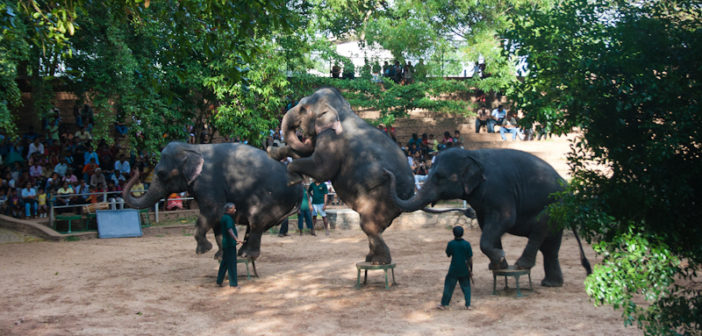
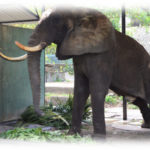
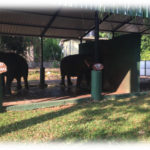
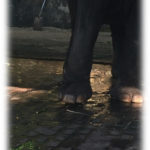
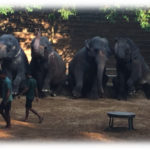
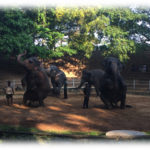




1 Comment
I have seen what they do at this zoo and it clear that the animals are under tremendous stress and have been tortured to get to perform in the way they do. This circus and the cruel treatment to animals needs to end.